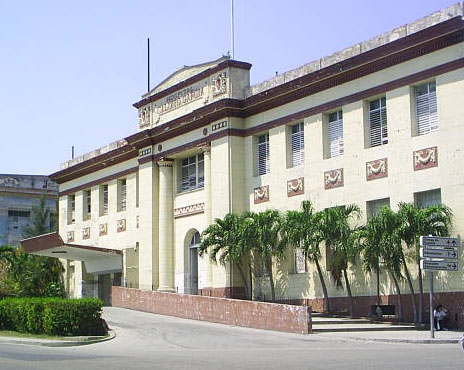
Anyone who still harbors any hope about the niceties of the health system in Cuba has only to get sick and go see a doctor. It’s not hard at all, taking into consideration the number of rare diseases circulating among us these days, just within reach. And there are other illnesses, already endemic, such as dengue fever, that are here to stay and thrive in our environment, reinforced year after year by the arrival of returning missionaries, laden with new diseases to share, and those students benefitting from the rapidly dwindling ALBA programs, who are still bringing us new strains of diseases that are becoming endemic on the Island.
In recent days I was one of the “lucky” ones to receive the collateral benefit of the Castro comradeship. I acquired — I don’t know how or where — a strange virus that caused me three days of high fever and a total of 10 days of nausea and vomiting. My stomach barely tolerated a bit of water and some cold juices, and just three or four days ago I resumed my normal eating habits. Of course, my healthy constitution, my size and my good diet allowed me to firmly support the onslaught and survive the experience with sufficient strength: I scarcely lost a few pounds. Others have not been that lucky. I inquired among friends and acquaintances and learned that there are dozens of people who have been admitted for dehydration and were given IV’s. No one has obtained an accurate diagnosis for this disease and everyone is exposed to contract it, since no one knows for sure how it spreads. In the consulting rooms, doctors look at you with almost commiseration and pronounce the ever-cryptic same old sentence: “it’s a virus”.
I suppose that studying and practicing medicine in Cuba has become a game both mystical and very simple at the same time: everything that is not dengue, is “a virus”, and everything, including dengue fever, is treated in the same way: plenty of fluids and rest. So here we are.
In any case, a quick visit to the Calixto García Emergency Teaching Hospital finally convinced me that the dazzling showcase of public health, a bastion of the regime’s propaganda, is definitely broken. The building, recently repaired, has the same chaotic look as everything in the country: patients lying on stretchers in the middle of the waiting room for everyone to see, empty consulting rooms, doctors with expressions of bewildered astonishment and confusion, talking among themselves as if patients were merely basic means and unfortunate diagnoses, such as what I got, when the little doctor who barely looked at me ventured to pronounce a diagnosis without labs or any other additional tests: kidney infection. I don’t have to tell you that I did not follow his indications for antibiotics, and I ended up where I should have started, asking my doctor friend to accompany me to which she kindly agreed, to order blood tests so dengue fever infections could be ruled out and conclude with the same enigmatic little word “virus”.
“Stay home. Don’t go to hospitals unless absolutely necessary. Thank God you’re strong and you’re getting better. No one knows what and how many diseases we now have, and for seven months there is a dengue epidemic that hasn’t been declared nor will it ever be declared. The health system has collapsed, medical ethics is in the process of extinction, and the only hope is that all this too shall pass. Stay home, friend, and may God protect us so we can see how this will all end, because what we need to do, is survive it.”
My friend is a very wise doctor.
Translated by Norma Whiting
February 6 2012
